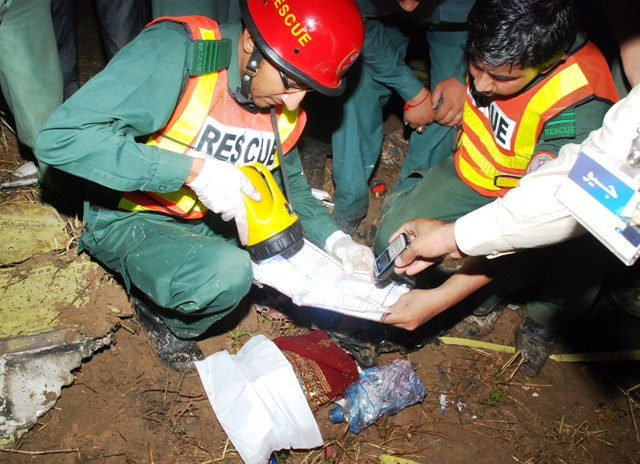Here’s what an ordinary day in the newsroom is like:
Stories come in, at regular intervals. People edit them, casually, in the knowledge that our paper will reach our readers tomorrow. People take cigarette breaks. Someone reminds someone else to turn the television on in case of breaking news, which usually turns out to be something insipid (at least for a journalist), like tyre burning at XYZ roundabout.
Here is what today, the day that over a hundred lost their lives in the Bhoja Air crash, was like:
At close to 7 pm, breaking news turned out to be far more than burning tyres. It turned out to be a tragedy. It turned out to be a tragedy reminiscent of another crash, still embedded in the nation’s consciousness.
Immediately, a sense of urgency set in. This was not an ordinary day. In a profession where even the most violent and horrific incidents tend to appear mundane to desensitised and cynical journalists, this was not an ordinary day.
Much will be written about the heart-wrenching tales of families torn apart, of who is to blame and why. I’m not in a position to comment on that. As television runs gory photos accompanied by eerie music and shots of family members who probably just want some privacy, I’d rather not talk how depressing it is. I know that nothing I feel while covering the tragedy can compare to what those who have lost their families and friends feel.
But what I do know is, I, along with all my colleagues, felt the need to report the issue responsibly.
As a print journalist, it’s necessary to ensure that one steers clear of the sensationalist nonsense that television persistently indulges in. The people lost in the crash were exactly that – people. Not numbers. People with stories, and histories, and futures cut abruptly short.
The people in the crash were not photo opportunities. They were not a good news story. They were not a novel way of updating one’s Twitter feed.
Sad as this sounds – that’s how a journalist knows it’s not an ordinary day. When the events of the day are more than Twitter, photos, well-edited copies and a human interest angle.
A day when a journalist can recognise a tragedy as just that – a tragedy – is not an ordinary day.
Read more by Heba here, or follow her on Twitter @hebaislam.
Bhoja Air crash: Tragedy for the professional cynic
A day when a journalist can recognise a tragedy as just that – a tragedy – is not an ordinary day.



COMMENTS
Comments are moderated and generally will be posted if they are on-topic and not abusive.
For more information, please see our Comments FAQ